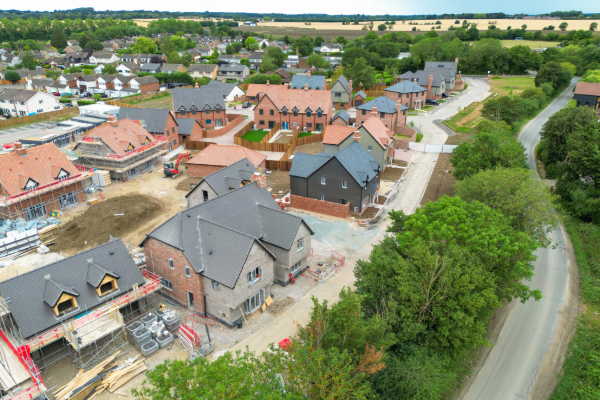Introduction
Most homeowners start their search for roofing services online, especially when facing urgent issues like a leaking roof or storm damage. This initial search moment is crucial for roofing companies to capture new business. Local SEO helps roofing contractors appear in map packs and city‑specific searches, making it easier for potential customers to find and choose your services, such as shingles, repairs, or full replacements.
📈 Check out our Roofing SEO Guide to plan your next moves.
Leveraging local roofing SEO strategies significantly amplifies online visibility for roofing companies, ensuring they appear in key local search results. This boost in visibility not only drives website traffic but also builds trust with potential customers who see your business prominently featured. How can this be achieved? Here are seven proven ways to dominate your local market through effective local SEO practices.

1. Claim and Optimize Your Google Business Profile
Your Google Business Profile (GBP) is your most valuable asset for local search visibility and it is crucial to make sure you optimize your GBP listing and update it regularly. It directly affects whether your business appears in the Local Map Pack and organic local searches. Claiming and optimizing your Google Business Profile is the essential first step in any local SEO strategy.
Start by ensuring that all your business details—business name, address, phone number, website URL, and business information—are accurate and up-to-date. These details must match exactly across all platforms to avoid confusion and help Google validate your business. Additionally, choosing the right categories, such as “Roofing Contractor,” and listing all services you offer can improve your visibility in relevant searches and create a strong shortlist of options for potential clients.
How to Fully Optimize Your Google Business Profile
To maximize the impact of your GBP, take these steps:
-
- Ensure that your NAP (name, address, phone) exactly matches your website, as consistency is vital for local SEO.
- Select accurate categories like “Roofing Contractor” and list all your services.
- Craft a compelling business description that includes relevant keywords and location terms to attract local customers.
Include project photos, specify your service areas, update business hours, and post regular updates to boost activity signals that Google considers when ranking local businesses. An active, informative profile not only improves your local SEO but also attracts more customers.
2. Encouraging and Managing Reviews
Online reviews are a powerful tool in your local SEO strategy. In fact most roofing companies that dominate a local market make it a point to earn more Google reviews. They influence placement in the Local Map Pack and play a crucial role in consumer decision-making. Encourage more reviews by asking customers to leave feedback via text or email after completing a job—this simple step can greatly increase the volume of your reviews. Responding to all reviews, whether positive or negative, shows potential customers that you’re engaged and value their experiences. Thanking clients for positive reviews and addressing negative feedback professionally builds trust and enhances your online reputation. Effectively managing your reviews can improve your local rankings and help you stand out in search results.

3. Use Location-Based Keywords on Your Core Pages
Using location-based keywords on your core pages improves your local search rankings by signaling to Google where and what services you provide. Aligning your content with local search intent boosts rankings and conversions, ensuring your site meets your target audience’s needs.
To effectively incorporate location-based keywords:
-
- Include them naturally within your content—avoid keyword stuffing.
- Focus on readability while keeping content relevant and engaging for visitors.
- Strategically place keywords where they’ll have the most impact, such as in titles and headers.
- Conduct keyword research to find the most valuable terms for your local market.
Where and how to use location keywords:
Use local keywords in title tags, meta descriptions, H1 headings, and image alt text. Also, mention your service areas, neighborhood names, landmarks, or local events to make your content more relevant. Writing naturally without forced repetition ensures your content is useful and attracts local customers effectively.
4. Build Location-Specific Landing Pages
Creating unique landing pages including high-quality city pages for each service area improves your chances of ranking in multiple locations. These pages signal relevance and proximity to searchers, making it easier for potential customers to find and choose your services. Addressing the specific roofing issues in each area shows your expertise and helps build trust with local clients.
What to include on local pages:
Tailored content about roofing challenges specific to the area—such as weather-related issues—helps your page resonate with local searchers. Adding testimonials from local clients increases credibility. Embed Google Maps, provide direction details, and clarify your availability in that city to enhance user experience and likely conversions.
Internal linking for SEO support:
Link each local page back to your main service pages and relevant blog posts to create a strong site hierarchy. Use a clear URL structure (e.g., /roofing/[city-name]) to help Google crawl and index your site more easily. Using descriptive anchor text helps both users and search engines understand the context of your internal links, distributing authority across your site.

5. Get Listed in Local and Industry Directories
Look for opportunities to build local citations. Listing your business in local business directories that are relevant to the roofing industry is essential for building backlinks and increasing brand visibility. These citations and local link building serve as trusted signals that confirm your business’s legitimacy and improve your local search rankings.
Where to get listed:
Begin with major local business platforms like Google Business Profile, Yelp, Angi, BBB, and HomeAdvisor. Then expand to niche-oriented directories like RoofingContractor.com and local chambers of commerce to further support your SEO efforts.
NAP consistency tips:
Maintaining consistent Name, Address, and Phone number formats across all listings is critical. Discrepancies can weaken your local authority. Use tools like BrightLocal or Whitespark to manage and monitor your citations, ensuring they align and strengthen your SEO impact.
Insights. Ideas. In Your Inbox
6. Use Schema Markup to Help Google Understand Your Business
Schema markup is structured data that allows search engines to better interpret your content. Implementing schema can result in richer search results, such as star ratings and FAQs, making your listing stand out and attracting more clicks.
Types of schema for roofing contractors:
-
- LocalBusiness schema: defines your location, contact info, and service categories
- Review schema: displays star ratings based on customer feedback
- FAQ schema: highlights common user questions directly in search results
How to add schema:
Use tools like Merkle Schema Markup Generator or a WordPress plugin like RankMath to implement schema easily. Or, ask your web developer to incorporate it manually into your HTML. Include properties like business name, contact number, opening hours, and address. Validate structured data with Google’s Rich Results Test and monitor performance via Search Console.
7. Create Localized Blog Content That Solves Real Problems
Creating localized blog content helps drive organic traffic and build trust with local homeowners. Your blog supports core service and location pages while providing valuable insights to your audience.
Types of local blog topics:
Write about region-specific maintenance tips, such as adapting to climate or handling permit requirements. Compare roofing materials suitable for your area’s weather to help decision-making homeowners.
Internal linking strategies:
Link blog posts to relevant service and location pages using descriptive anchor text. Incorporate breadcrumbs to help users and search engines navigate your site easily, improving retention and SEO performance.
Summary
In conclusion, dominating your local market as a roofing company requires a strategic suite of local SEO tactics. By optimizing your Google Business Profile, using location-based keywords, creating geo-targeted landing pages, securing consistent directory listings, managing reviews, implementing schema markup, and publishing localized blog content, your visibility and credibility can grow significantly. Stay proactive—update your profiles regularly, engage with customers, and refine your content to maintain a strong online reputation. With dedication and the right strategies, you can own your market and permanently boost your business growth.

Ready to take the next step? Book a roofing SEO consulting call with Horton Digital or request a free local SEO audit—we’ll arm you with actionable ideas to help you take over your market.
Frequently Asked Questions
Why is local SEO important for roofing companies?
Local SEO improves visibility in geographically targeted searches, especially during urgent scenarios. It helps potential customers find your services exactly when they need them.
How can I optimize my Google Business Profile?
Ensure your business name, address, and phone number match your website, pick accurate categories, and add compelling descriptions, photos, service details, and reviews. Regularly update posts and respond to feedback to maximize your profile’s impact.
What are location-based keywords and where should I use them?
These are search phrases that include geographic qualifiers like city or neighborhood names. You should use them in titles, descriptions, headers, images, and throughout your content to improve local SEO rankings.
Why is internal linking important for local SEO?
Internal links enhance site navigation, distribute authority, and help search engines understand the structure and relevance of your content, which supports better rankings.
How do online reviews impact local SEO?
Recent and positive reviews in volume help improve your position in the Local Map Pack and boost consumer trust, making users more likely to contact your business.

